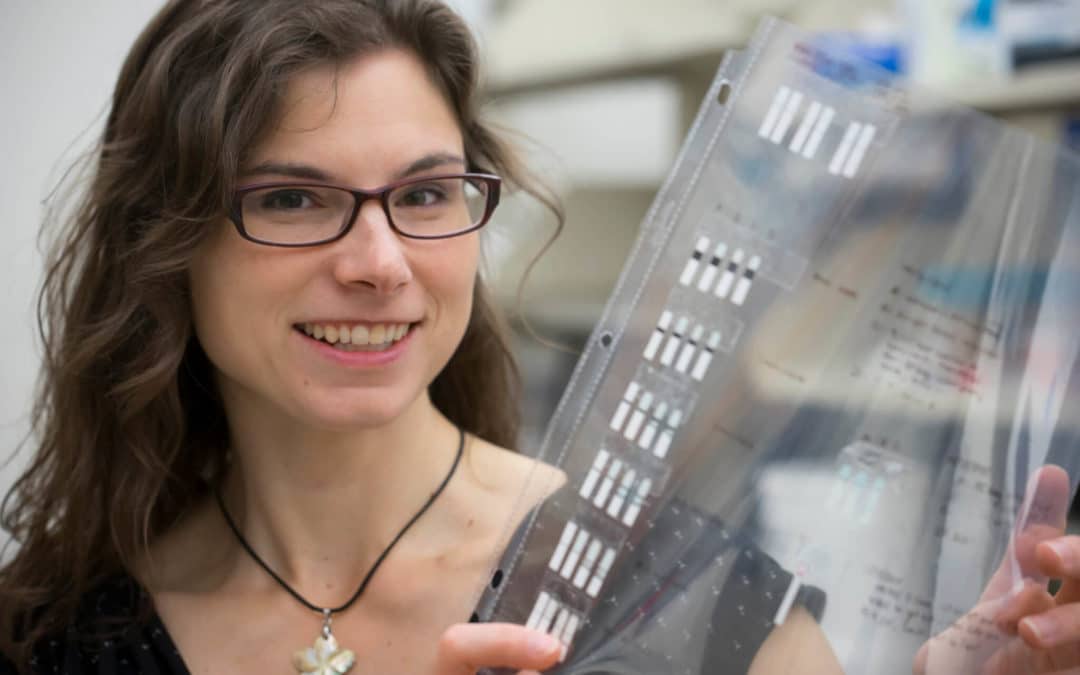Imagine diabetics no longer having to prick their fingers to test their blood sugar. Elderly patients wearing a temporary tattoo that shows their doctors if they’ve taken their medicine.
These far-fetched ideas are becoming a reality, thanks to Purdue researchers looking into new diagnostic platforms and low-cost devices.
One of those innovators is Jacqueline Linnes, assistant professor of biomedical engineering, who specializes in creating paper-based devices to instantly diagnose diseases in the field that previously took days in a lab. She is collaborating with other researchers to make a quantitative test that will empower officials to track water quality, helping to prevent cholera’s spread in Haiti.
Linnes is also working with researchers in Kenya on a tool to diagnose neonatal sepsis, a major cause of newborn illness and mortality around the world, particularly in low-income countries.
The goal of her lab is simple: to create real-time detection technologies to prevent, diagnose and better understand the pathogenesis of diseases. To that end, she is creating a breathalyzer to replace a traditional diabetes glucometer requiring finger pricks and a liquid bandage to detect drug overdose in real time.
“Anything we can do to empower patients to take control of their health and do a better job staying healthy while reducing medical costs is good; if you can keep people healthy, it’s cheaper all around,” says Linnes. “I’m excited to develop high-tech solutions and combine these with low-tech innovations so that we can make robust devices for anybody, anywhere in the world to use.”
– Sarah Anderson, Research Communications, http://bit.ly/2pbqfZ8
